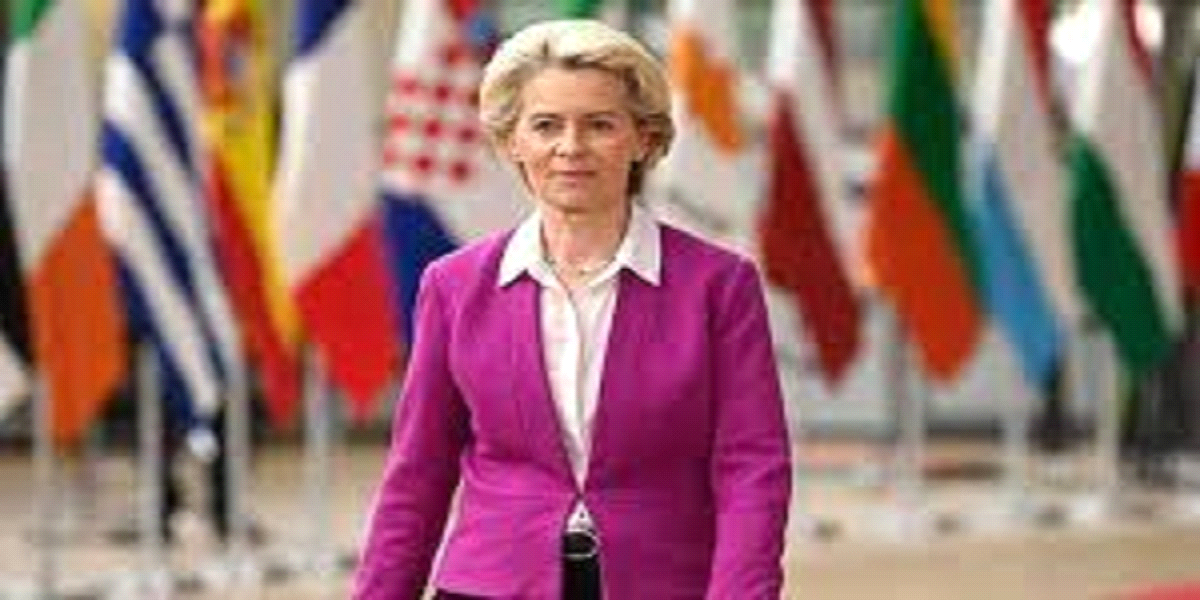To punish Moscow for invading Ukraine, EU leaders declare they will ban most Russian oil imports by the end of 2022.
The EU-wide boycott will influence oil that shows up via ocean – around 66% of imports – yet not pipeline oil, following resistance from Hungary.
Poland and Germany have likewise promised to end pipeline imports, meaning a sum of 90% of Russian oil will be hindered.
European Council boss Charles Michel said the arrangement cut off an immense wellspring of funding for the Russian conflict machine.
It is important for the 6th bundle of approvals supported at a culmination in Brussels, which each of the 27 parts states has needed to settle on.
Russia presently supplies 27% of the EU’s imported oil and 40% of its gas. The EU pays Russia around €400bn ($430bn, £341bn) a year consequently.
Up to this point, no assents on Russian gas commodities to the EU have been set up, in spite of the fact that intends to open another gas pipeline from Russia to Germany has been frozen.
The UK – which gets 8% of its oil needs from Russia – has vowed to progressively get rid of Russian oil before the year’s over.
Oil costs got after catching wind of the EU ban, with Brent unrefined transcending $123 a barrel, its most significant level since March.
EU individuals went through hours battling to determine their disparities over the restriction on Russian oil imports.
Hungary, which imports 65% of its oil from Russia through pipelines, was its principal adversary.
Hungary’s Prime Minister, Viktor Orban, has great relations with Russian President Vladimir Putin.
The trade-off followed a long time of fighting until it concurred there would be “an impermanent exclusion for oil that comes through pipelines to the EU”, Mr. Michel told correspondents.
Along these lines, the prompt assent will influence just Russian oil being shipped into the EU over the ocean – 66% of the all-out imported from Russia.
Yet, by and by, European Commission President Ursula von der Leyen said the extent of the boycott would be more extensive, in light of the fact that Germany and Poland have elected to unwind their own pipeline imports before the current year’s over.
“Left more than is around 10-11% that is covered by the southern Druzhba,” Ms. Von der Leyen expressed, alluding to the Russian pipeline providing oil to Hungary, Slovakia, and the Czech Republic.
The European Council would return to this exception “as quickly as time permits”, she added.
A senior EU official affirmed that the three landlocked nations were given extra assurance that they could get supplies of seaborne Russian oil in case of interference to pipeline supply.
The Russian envoy to the EU, Vladimir Chizhov, said Brussels had “proactively moved toward the constraints of what is conceivable regarding sanctions”.
Addressing Russian state TV, he anticipated “significant issues” on the off chance that the EU were to attempt to settle on a gas ban.
The restriction on Russian oil imports was at first proposed by the European Commission – which creates regulations for part states – a month prior.
In any case, opposition, outstandingly from Hungary, held up the EU’s pained most recent round of authorizations.
Mr. Orban proclaimed the understanding a triumph for his nation, telling Hungarians they could rest sufficiently – shielded from costly fuel costs that the ban would bring to the remainder of Europe.
“We prevailed with regards to overcoming the proposition of the European Council which would have taboo Hungary from utilizing Russian oil,” he said in a Facebook video.
Other landlocked nations, like Slovakia and the Czech Republic, additionally requested additional time because of their reliance on Russian oil.
Bulgaria, currently cut off from Russian gas by Gazprom, had similarly looked for pick-outs.
The cost for most everyday items emergency being felt across Europe has not helped by the same token.
Soaring energy costs – in addition to other things – have shortened some EU nations’ craving for sanctions which could likewise hurt their own economies.
The EU’s oil understanding is a trade-off bargain – but on the other hand, it’s a significant one.
Moscow is vigorously dependent on its energy sent out, and the EU says this arrangement will cut over 90% of Russian oil imports before the year’s over.
Be that as it may, taking into account all the saber-shaking and against the Western way of talking we’ve been hearing from Vladimir Putin lately, I suspect the Russian chief is bound to tell Europe: “Prepare for some more financial aggravation due to this ban. We should perceive how long your help for Ukraine endures.”
The Kremlin knows about the distinctions of assessment inside the EU over what to do about Russia – and you should rest assured that Putin will attempt to take advantage of them.
Russia will search for new business sectors, yet as far as oil that is not a handy solution.
The foundation isn’t set up to reorient oil trades from Europe to Asia, for instance.
What’s more, on the off chance that it offers to Asia – it should do as such at a limited cost.
There’s additionally the topic of Russian gas – a ban on that could be examined straight away.
Ukraine’s President Volodymyr Zelensky, who dialed into the culmination, asked EU nations to stop their inner “squabbles,” expressing that they just aided Moscow.
“All fights in Europe should end, inward debates that just urge Russia to come down on you,” Mr. Zelensky said through video-connect.
Latvia’s Prime Minister Krisjanis Karins said part nations shouldn’t get “impeded” in their very own advantages.
“Setting us back more is going. Be that as it may, it’s just cash.
The Ukrainians are paying with their lives,” he said.
Russia slices off gas supplies to Dutch firm GasTerra on Tuesday for declining to pay for provisions in roubles.
The EU has expressed that paying in Russian money breaks sanctions and Gazprom has proactively sliced supplies to Poland, Finland, and Bulgaria.

















